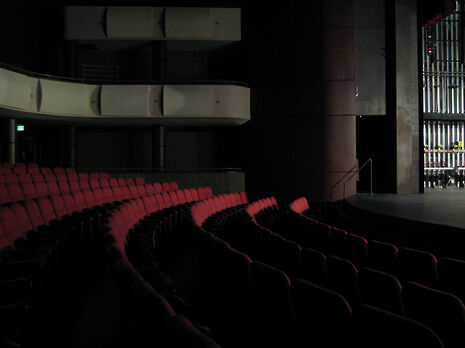Theatre: blank slate or social institution?
As the National Youth Theatre cancels a new play about ISIS and radicalisation days before opening night, Shefali Kharabanda questions the role of theatre in handling controversial issues

A National Youth Theatre (NYT) production was cancelled on 30th July, less than a fortnight before opening night. If you don’t know who they are, NYT is a pretty well-known company, which produces innovative theatre both nationally and globally.
According to a statement released by NYT, the play was cancelled due to issues of quality: “After some consideration, we have come to the conclusion that we cannot be sufficiently sure of meeting all of our aims to the standards we set and which our members and audiences have come to expect.” But according to the director and playwright, Nadia Latif and Omar El-Khairy, the production was cancelled owing to external pressures, suggesting that local authorities and law enforcement got involved.
The play, Homegrown, was based upon a subject which is precarious and current – ISIS, and the potential radicalisation of youth. I appreciate that these are dangerous waters. I appreciate that such a play could potentially make people uncomfortable.
What makes me uncomfortable, though, is the fact that theatre can be undermined in this way. For me, theatre has always been a place for exploration. Whether the subject matter explored happens to be humorous, serious, topical, intellectual, fantastical or whatever else, the stage is a place for fearless exploration. Certainly, it is a place for entertainment. But it can also be a place where important matters can be animated, where discussion can be enlivened, and where audience members can interact with a story in a remarkable way. I believe that we can see and learn and grow at the theatre in a way specific to theatre itself: it is the only place where a story is truly, truly present. We are looked at and spoken to. We are connected; we respire with and within a story.
It is easy for theatre, indeed for any art, to become comfortable. To become the sofa that has been sitting in the living room for the last seven years, slightly off-red, worn out, the odd small stain. To give us what we want, so that all we have to do is observe, take a bubble bath for the brain, watch the same stories and the same characters deviate slightly from the archetype script. But art that is really worthwhile does not ask you to observe: it asks you to participate.
And participation does not stipulate concordance. I do not know what the plot of this play was. I do not know how the script read. But what I do know is that I did not see a production of A View From the Bridge and develop a sudden hostility for immigrants. I did not read We Need to Talk About Kevin and suddenly approve of a mass murdering child. I believe in our ability to be awake as audience members. Besides, it is precisely through art which addresses controversial issues that we are then able, collectively, to address controversial issues openly and freely. Art is not shackled by the same political priorities which invariably tint issues passing through the media mill.
In an interview with The Guardian in June earlier this year, the artistic director of NYT, Paul Roseby, was quoted to have said that the director and playwright, Latif and El-Khairy, “are drawing on… the fears and misconceptions around Islam in this country and the obvious racism that is happening as a result of the actions of ISIS, and so they are working on this piece with the idea of redressing the balance”. Reading this perspective in hindsight of what has happened undoes its outspokenness and renders it dumb. Now, at least with regards to this specific production, an opportunity to “redress the balance” has been lost.
The difficulty, though, especially in light of this earlier statement, is that it is hard to pin down where exactly the censoring has occurred. Undoubtedly it has: surely issues of “standards” would have become apparent more than a fortnight before the play was due to be performed. Yet MPs say they had nothing to do with it, and NYT has confirmed that “no external parties had any involvement in the decision”. Perhaps, then, an opportunity to “redress the balance” has simply been thrown away.
It is only through speaking about openly difficult matters that we can begin to understand them; after all, how can we navigate issues which remain murky? How can we resolve issues which are never opened up to the opportunity of being resolved? Theatre can be one such way of speaking out, and a characteristically brave and illuminating one at that. By default, it involves – quite literally – adding life: actors bring their talents and pulses and life to stories and, when allowed, to controversial matters. This presents us with an incredibly bold opportunity to square up to, and look straight in the eye, the very matters which scare us most.
 News / CUP announces funding scheme for under-represented academics19 December 2025
News / CUP announces funding scheme for under-represented academics19 December 2025 News / SU reluctantly registers controversial women’s soc18 December 2025
News / SU reluctantly registers controversial women’s soc18 December 2025 News / Cambridge welcomes UK rejoining the Erasmus scheme20 December 2025
News / Cambridge welcomes UK rejoining the Erasmus scheme20 December 2025 Features / Should I stay or should I go? Cambridge students and alumni reflect on how their memories stay with them15 December 2025
Features / Should I stay or should I go? Cambridge students and alumni reflect on how their memories stay with them15 December 2025 Film & TV / Timothée Chalamet and the era-fication of film marketing21 December 2025
Film & TV / Timothée Chalamet and the era-fication of film marketing21 December 2025









